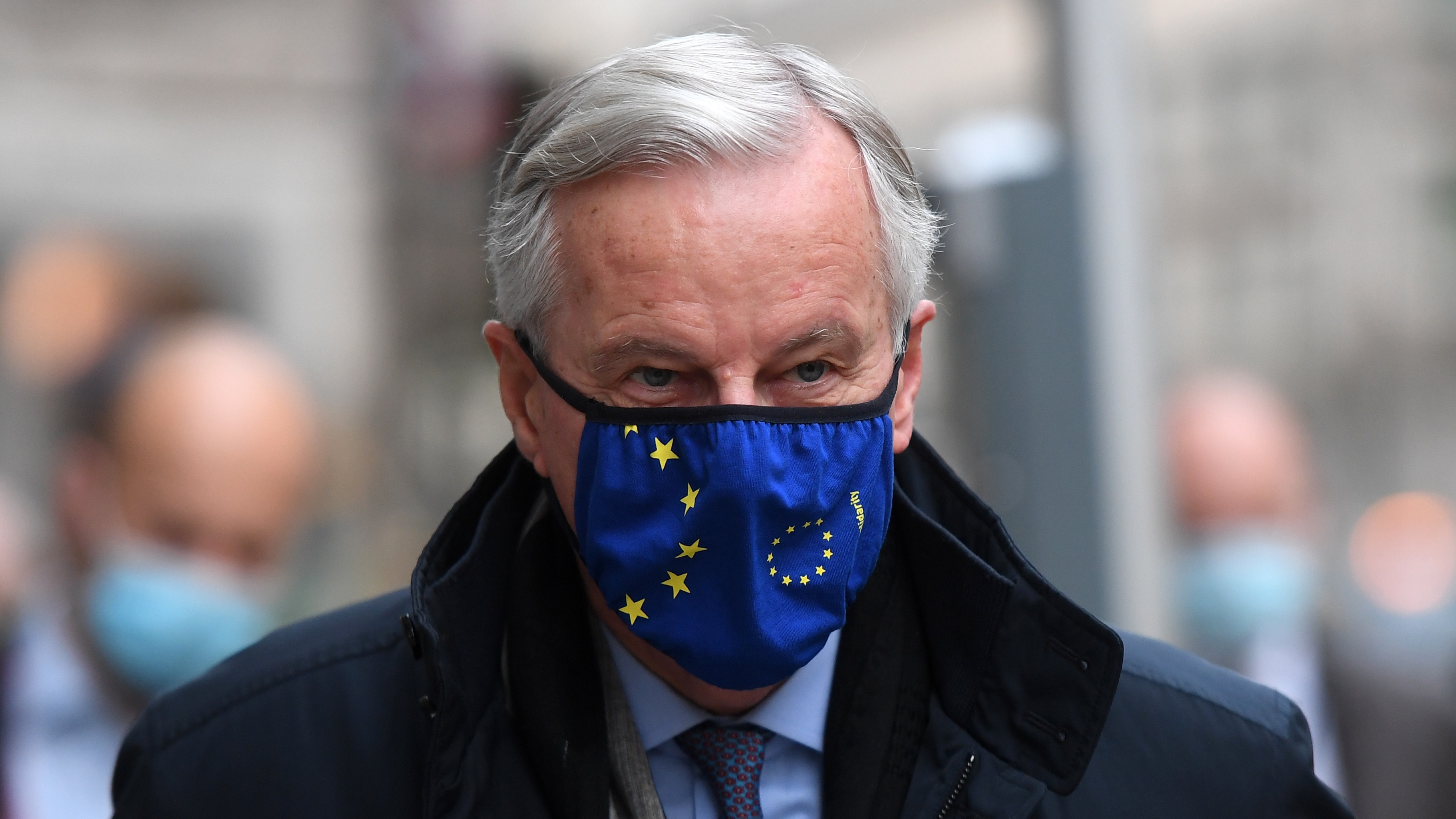Michel Barnier blasts Britain’s ‘childish’ Brexit team in tell-all diary
EU chief negotiator publishes blow-by-blow account of painstaking negotiations

A free daily email with the biggest news stories of the day – and the best features from TheWeek.com
You are now subscribed
Your newsletter sign-up was successful
Michel Barnier has spilled the secrets of four years of Brexit negotiations in a new book that slams the UK’s team as “childish” and “not up to the task”.
La Grande Illusion (The Grand Illusion), a 500-page diary of the EU-UK talks, is published today and will make uncomfortable reading for some of Westminster’s biggest names.
Barnier “resists the urge to paint vindictive pen portraits of those with whom he crosses paths”, the BBC says, but “certainly lets us know what he made of them”, describing Boris Johnson as a “bulldozer, genuine and impish”, says The Telegraph.
The Week
Escape your echo chamber. Get the facts behind the news, plus analysis from multiple perspectives.

Sign up for The Week's Free Newsletters
From our morning news briefing to a weekly Good News Newsletter, get the best of The Week delivered directly to your inbox.
From our morning news briefing to a weekly Good News Newsletter, get the best of The Week delivered directly to your inbox.
The prime minister, says Barnier, “appeared to be confused about Britain’s position on key aspects of Brexit negotiations at a critical moment”, The Times reports, writing that at one point he “suggested a minimal deal on areas of existing agreement, with a new pact on defence and security”.
Barnier writes that he replied: “But, Boris, it was you who refused to open a chapter on defence, co-operation and foreign policy in the negotiations”. Johnson is then said to have looked at his officials as he replied: “What do you mean, me? Who gave this instruction?”
At another point, Johnson “wrongly claimed that the EU had ruled out a Canada-style trade relationship”, The Telegraph says.
“We looked at each other with incredulity. It was almost childish,” Barnier writes, adding that an aide told him: “We must now do what we always said we would do: be the adults in the room – calm, united, ready for all scenarios.”
A free daily email with the biggest news stories of the day – and the best features from TheWeek.com
Former Brexit secretary, now foreign secretary, Dominic Raab is described as a man with a “messianic light in his eye” who “lacks nuance”, while his predecessor in the Department for Exiting the European Union, David Davis, is said to have kept a low profile and “avoided blows”.
Jacob Rees-Mogg is “one of the most ideological Eurosceptic Conservative MPs and decidedly the most opportunistic, who cultivates a style that is more 19th century than close to the people”, while Jeremy Corbyn is simply described as an “old school leftist”.
Corbyn is given “short shrift” by Barnier, The Telegraph says, with the senior EU official describing how he “failed to grasp the technicalities of the negotiations” and had a “heavy responsibility” for sitting on the fence during key moments.
Theresa May is spared the worst of Barnier’s “disdain”, the paper adds, with the ex-French minister describing her as a “woman who didn’t like Brexit”, but who “was obliged to see through” that “which she didn’t want”.
She “was infinitely preferable as prime minister to all the Brexiters”, he adds, while Keir Starmer comes in for praise, with Barnier writing how he got the feeling he was “dealing with a future prime minister of the UK”.
Joe Evans is the world news editor at TheWeek.co.uk. He joined the team in 2019 and held roles including deputy news editor and acting news editor before moving into his current position in early 2021. He is a regular panellist on The Week Unwrapped podcast, discussing politics and foreign affairs.
Before joining The Week, he worked as a freelance journalist covering the UK and Ireland for German newspapers and magazines. A series of features on Brexit and the Irish border got him nominated for the Hostwriter Prize in 2019. Prior to settling down in London, he lived and worked in Cambodia, where he ran communications for a non-governmental organisation and worked as a journalist covering Southeast Asia. He has a master’s degree in journalism from City, University of London, and before that studied English Literature at the University of Manchester.